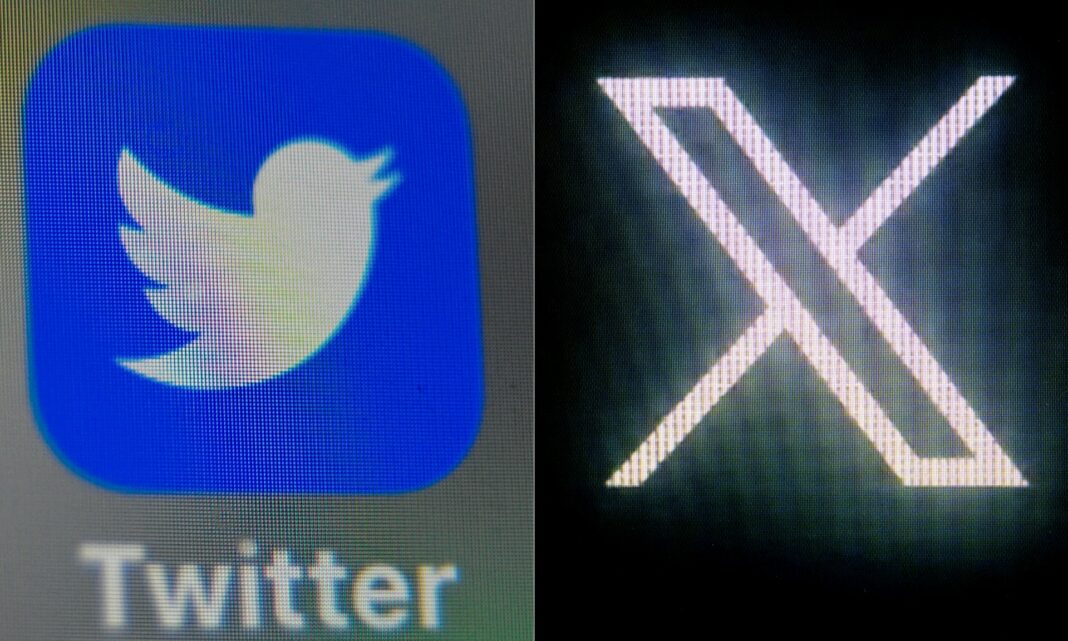The X social media platform announced on Wednesday that it has taken action against 12 accounts in Turkey “to prevent the X service being blocked,” once again censoring content critical of Turkish President Recep Tayyip Erdoğan, just as it did prior to the May general election, this time ahead of local elections in March.
Ahead of Turkish local elections on March 31, the Turkish Government has made clear to us that X is the only social media service not complying in full with a recent court order.
In order to prevent the X service being blocked we have taken action on twelve accounts and 15… pic.twitter.com/C1pCrTtXII
— Global Government Affairs (@GlobalAffairs) January 10, 2024
“Ahead of Turkish local elections on March 31, the Turkish Government has made clear to us that X is the only social media service not complying in full with a recent court order. In order to prevent the X service being blocked we have taken action on twelve accounts and 15 Tweets identified by court order,” the X Global Government Affairs handle posted.
The order in question was issued by the Ankara 9th Criminal Court of Peace, and it orders the restriction of access to 210 posts and accounts including accounts on Instagram, TikTok and YouTube, in addition to those on X.
The accounts that were restricted by X are either managed by Kurdish businessman Muhammed Yakut or fan accounts sharing his videos.
Before Turkey’s May elections, Yakut, who is from the southeastern province of Diyarbakır, made revelations on YouTube about ruling Justice and Development Party (AKP) figures, particularly concerning Erdoğan, then-interior minister Süleyman Soylu, then-defense minister Hulusi Akar and former finance minister and Erdoğan’s son-in-law Berat Albayrak.
He shared their alleged links to shady business deals, black money and mafia-style dealings as well as the shadowy background of a July 15, 2016 coup attempt.
Yakut’s “Delilerin Delisi” (The Craziest of the Crazy) YouTube channel became inaccessible after a court order was issued in April.
The İstanbul Chief Public Prosecutor’s Office issued an arrest warrant for Yakut in May on charges of “unlawful acquisition and dissemination of personal data” and requested an INTERPOL Red Notice through the Ministry of Justice at the time.
Journalist Serdar Akinan was detained in April and released on judicial probation following an interview with Yakut.
Yakut told Akinan that the July 15 coup attempt was staged and that President Erdoğan and members of his government knew about it in advance.
People challenging the AKP narrative on the failed coup or investigating its background are frequently targeted through judicial action or bans.
On May 13, a day before Turkey’s presidential and parliamentary elections X, then known as Twitter, said it had restricted access to certain accounts “to ensure Twitter remains available to the people of Turkey.”
The accounts that were restricted at the time were Yakut’s and investigative journalist Cevheri Güven’s.
Güven is a Turkish journalist who lives in exile in Germany and is on Erdoğan’s wanted list. His videos on YouTube, in which he talks about the Turkish government’s corruption and shady relations, attract millions of viewers.
“We will continue to object in court, as we have done with all requests, arguing that the law’s protections for freedom of expression should apply to these posts. We are publishing below the court order in the interests of transparency,” X Global Government Affairs said in the announcement on Wednesday.
The social media platform was purchased by Elon Musk in October 2022, and its name and blue bird logo were changed to X in July.
After the restrictions in May, Musk defended his company’s stance, while critics argued at the time that the platform’s decision could have had a significant impact on the Turkish elections by suppressing dissenting voices during a crucial political event.
It is now time to remind that "@elonmusk is playing a risky game with the Turkish Government" and the @GlobalAffairs announcement does not change the fact that ignoring local context under the guise of following local laws is a dangerous game. @Slate https://t.co/IgiVfzfwxd https://t.co/E1Nqy5hlmB
— Yaman Akdeniz (@cyberrights) January 10, 2024
Most Turkish newspapers and television stations came under the control of government officials and their business allies during a sweeping crackdown that followed the failed coup in 2016.
According to Reporters Without Borders (RSF), 90 percent of the national media in Turkey, which was ranked 165th among 180 countries in the RSF’s 2023 World Press Freedom Index, is owned by pro-government businessmen and toe the official line.
But social networks and internet-based media remained largely free of oversight — much to the growing annoyance of Erdoğan.
This began to change when Turkey used the threat of harsh penalties to force giants such as Facebook and Twitter to appoint local representatives who can quickly comply with local court orders to take down contentious posts.
Erdoğan began to argue at around the same time that Turkey’s highly polarized society was particularly vulnerable to fake and misleading news.
Social media has “turned into one of the main threats to today’s democracy,” Erdoğan said in December 2021.
According to a report from the US-based Freedom House in October, Turkey again ranked among the “not free” countries concerning online freedoms.
